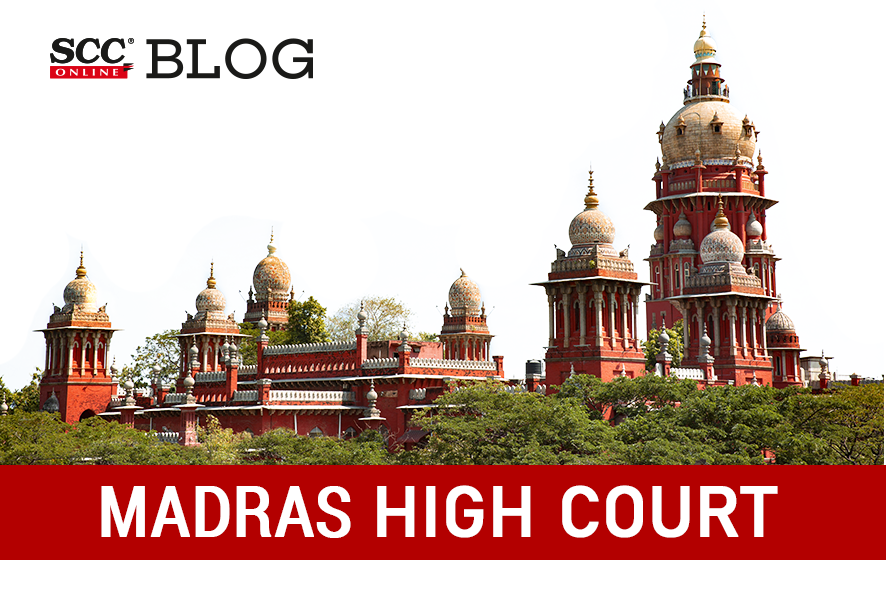Madras High Court: A civil revision petition filed to strike off a complaint under Domestic Violence Act pending at the Family Court The Single Judge Bench of S.M Subramaniam,J. dismissed the petition, on the grounds that Foreign Court Judgments are not conclusive and the rights of an aggrieved to seek relief under special enactments can’t be denied as it would amount to infringing their basic rights. Thus, it held that the wife was entitled to institute and maintain matrimonial proceedings, DVC proceedings and any other proceedings under the relevant Statutes in Indian Courts having jurisdiction for appropriate reliefs.
In the present case, the revision petitioner (husband) and the respondent (wife) were born and brought up in India and registered their marriage in Chennai under the Hindu Marriage Act 1955 (‘HMA’). Post this, they moved to the United States of America (‘USA’) and acquired citizenship by naturalisation. Due to family disputes, the wife, and her twin childrenreturned to Chennai and decided to reside there.
The husband sent a legal notice to the wife and moved a complaint for Divorce and Custody of Children before the Circuit Court of Fairfax County; he also filed a petition before Madras High Court for Guardianship and Custody of the Children. On the other hand, the wife filed a petition under Section 9 of the HMA for the relief of Restitution of Conjugal Rights before Family Court in Chennai on the ground that the marriage was solemnised as per Hindu Rites and Customs and registered under HMA. The Court dismissed the request since matrimonial proceedings were pending before the United States Court.
The wife had initially participated in the proceedings of the US Court virtually however failed to attend subsequent proceedings, including a physical hearing where her presence was demanded, which resulted in an exparte decree of divorce and custody of children.
Subsequently, the wife filed a Domestic Violence complaint (‘DVC’) before the Protection Officer under the Protection of Women from Domestic Violence Act, 2005, against the husband. The husband decided to file a Habeas Corpus Petition (‘HCP’) to produce children for the purpose of taking them to the USA, before the Madras High Court. The husband filed petitions for custody and divorce before a US court and secured ex parte orders.
With all this as a backdrop, the Husband filed revision petition to quash the complaint made by the wife in Family Court.
The High court, in view of the principles laid down by the Supreme Court and considering the decision of the 15-year-old twin children and the decision of the wife to reside in Chennai as an Overseas Citizenship of India (‘OCI’) cardholder, stated that the wife has the right to institute and maintain matrimonial proceedings, DVC proceedings and any other proceedings under relevant Statutes in Indian Courts having Jurisdiction for appropriate relief. The Court also granted interim custody of twin minors in favour of the wife until the matrimonial dispute and domestic violence proceedings are disposed of.
The Court took note of Nil Ratan Kundu v. Abhijit Kundu, (2008) 9 SCC 413, wherein it washeld that “if the minor is old enough to form an intelligent preference or judgment, the Court must consider such preference as well.”
Considering judgments of the Supreme Court and High Courts across the country, it was noted that weightage should be given to the choices and wishes of minors who are mature enough to express their desires. Further itopined that directives issued in HCP run counter to principles laid down by SC. Thus, the Court could not consider the HCP order in isolation and strike off petitions filed by the wife in the Indian Courts for restitution of Conjugal Rights and Domestic Violence Act for various reliefs sought.
Placing reliance on Robarto Nieddu v. State of Rajasthan, 2021 SCC OnLine Raj 4345 wherein it was held that “any woman, including a foreign citizen, can be construed as an ‘aggrieved person under the provisions of the Domestic Violence Act.”, said that the aggrieved respondent is entitled to protection under Section 12 of the Domestic Violence Act, 2005.
The court, therefore, stated that the aggrieved woman’s right to seek relief under Special Enactments could not be taken away as the same would be regarded as an infringement of her basic rights under the Constitution as well as Special Enactments. Since, the 15-year-old mature twin children expressed their clear desire to live with their mother, forcibly handing the boys to the husband would be detrimental to their interests and future life. The Court said that when OCI cardholders are entitled to live in India indefinitely, forcing them to leave India would be a violation of the Fundamental Rights guaranteed to them.
With reference to the ex parte orders of US Courts, the Court stated that foreign judgements are not conclusive, but merely a factor to be taken into account while arriving at a decision. Since the facts and circumstances make it clear that the children and wife want to live in Chennai and are not interested in returning to the US as they don’t trust the revision petitioner, who has not been maintaining the children and is an alleged economic abuser, sending them back forcibly could result in them being on the streets and would violate the rights ensured under Indian Constitution to OCI cardholders.
The Court saidthat the ex parte decree of divorce granted by the US Court could not be a sole bar for the wife to institute matrimonial proceedings in India. The husband could thus contest the case instituted against him, but can’t contest the maintainability of such proceedings since the marriage was solemnised and registered in India.
Taking into account all the aforementioned factors, the civil revision petition to quash proceedings instituted by the wife was dismissed.
[X v. Y 2023 SCC OnLine Mad 474 decided on 01-02-2023]
Advocates who appeared in this case:
For Petitioner: Advocate G. Rajagopalan;
For Respondent: Party -in-Person.







